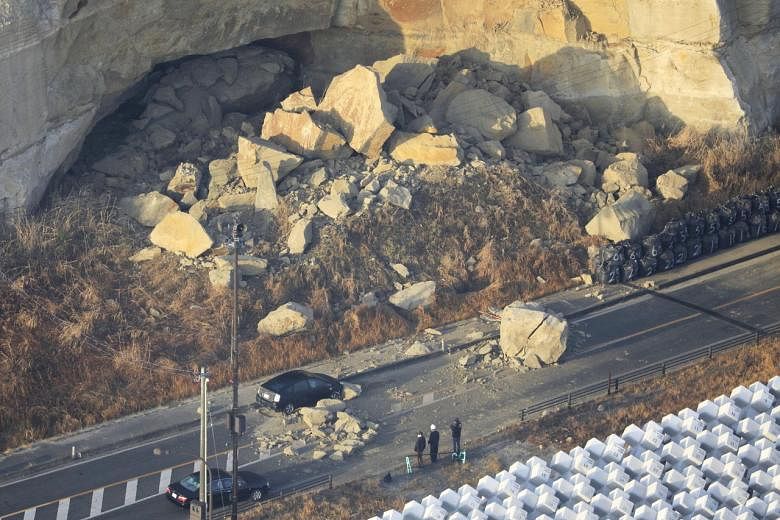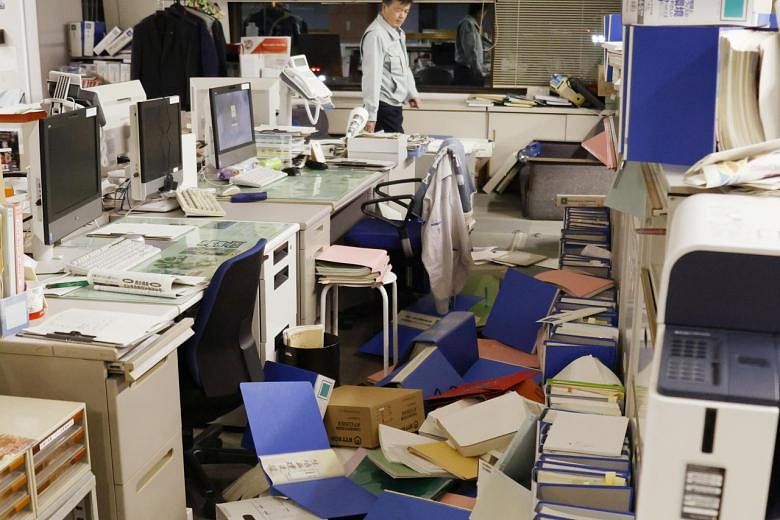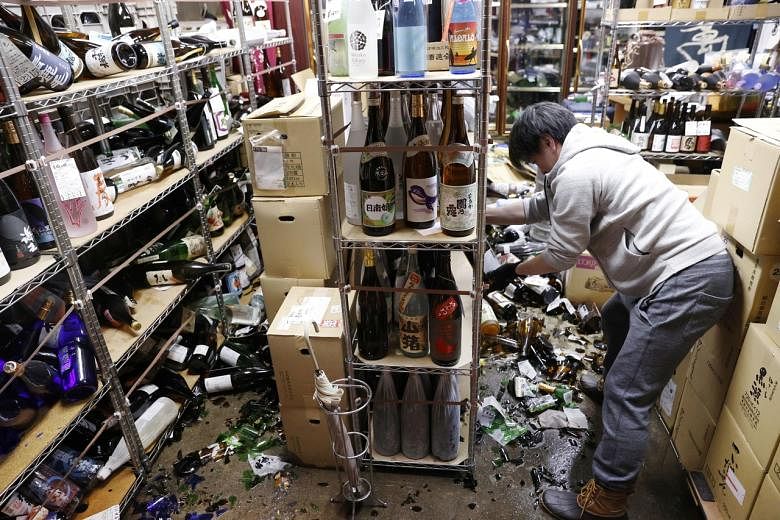IWAKI, Japan (REUTERS, XINHUA) - More than 150 people were injured and trains halted over a wide swathe of north-eastern Japan on Sunday (Feb 14) after the region was jolted by a major earthquake in the same area as the 2011 Fukushima quake that set off a tsunami nearly 10 years ago.
The 7.3 magnitude quake struck shortly before midnight Saturday and cracked walls, shattered windows and set off a landslide in Fukushima, the area closest to the epicentre.
The quake shook buildings in the Japanese capital Tokyo hundreds of kilometres away.
Though hundreds of thousands of buildings lost electricity just after the quake, which struck at 11.08pm local time (10.08pm Saturday, Singapore time), by the next morning power had been restored to most.
Several thousand households remained without water, though, and residents lined up with plastic jugs to receive water from trucks.
More than 150 people were injured, including some who suffered fractures, but there were no reported deaths.
There was no tsunami, and no reports of irregularities at any nuclear plants.
According to Tokyo Electric Power Company Holdings, water in a used nuclear fuel pool spilled over but has not leaked in the Fukushima Daiichi Power plant, which has suffered nuclear meltdowns in the magnitude 9.0 quake on March 11, 2011, that set off a tsunami, killing nearly 20,000 people along a wide swath of north-eastern Japan.
However, the latest quake revived memories of that massive quake that led to the world's worst nuclear crisis in 25 years.
Ms Aoi Hoshino said Saturday's quake brought back frightening memories.
"My body immediately reacted, and I couldn't stop trembling. My legs were shaking too, but I couldn't gauge whether it was safer to run out or stay in, so I ended up doing a weird little dance," she said with a chuckle.
Shinkansen bullet train service to much of northern Japan was suspended due to damage along the tracks. Service along one line was not expected to be restored until at least Tuesday.
Earthquakes are common in Japan, one of the world's most seismically active areas. Japan accounts for about 20 per cent of the world's earthquakes of magnitude 6 or greater.








